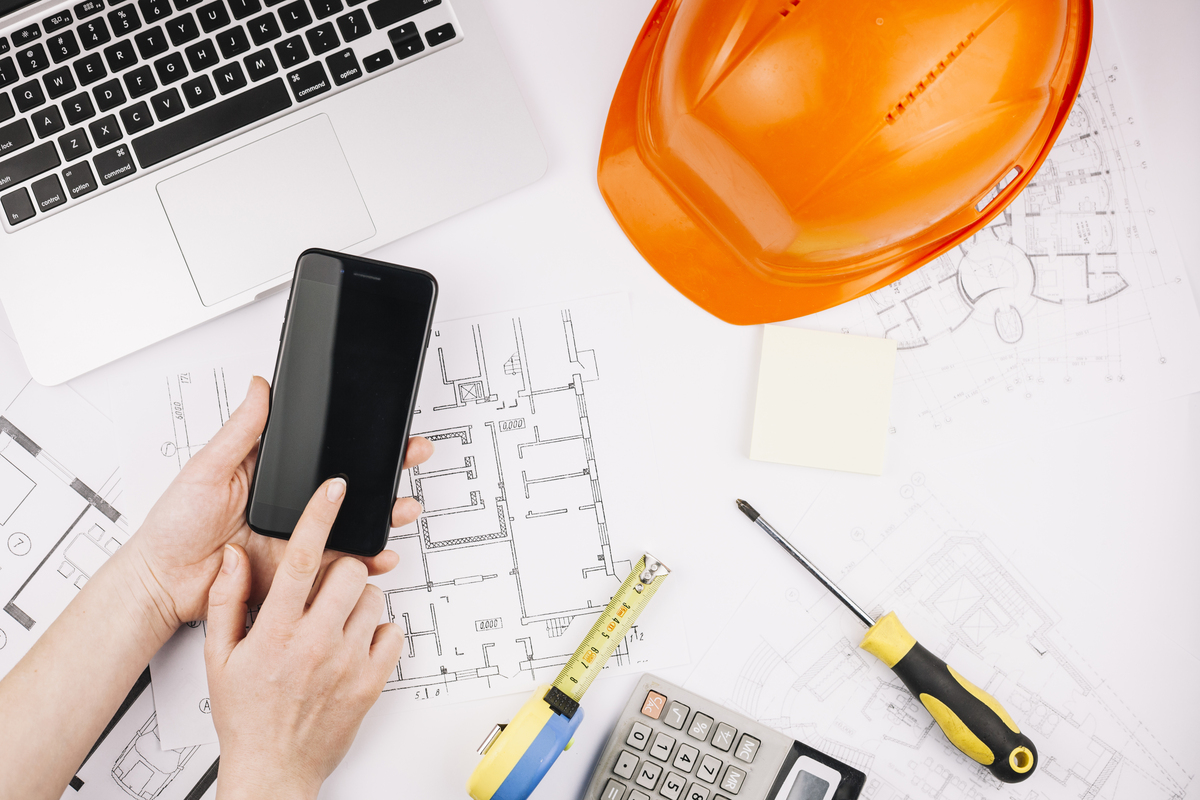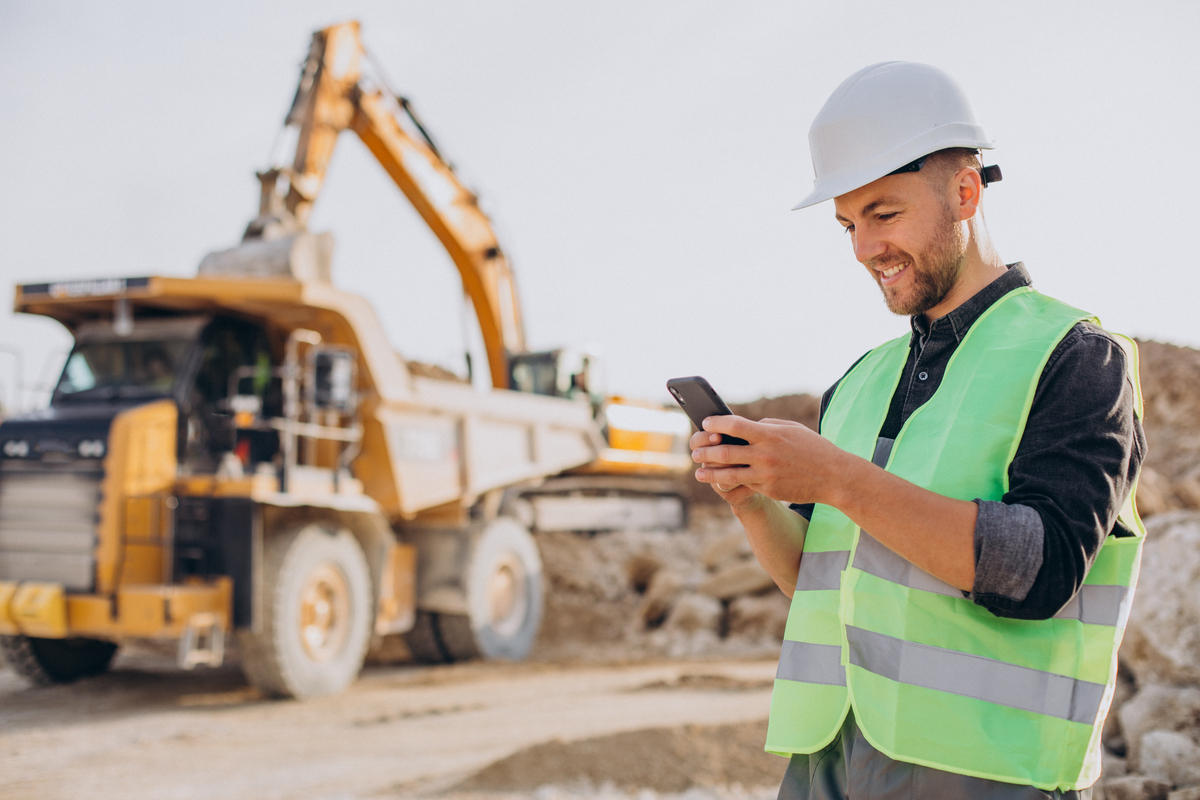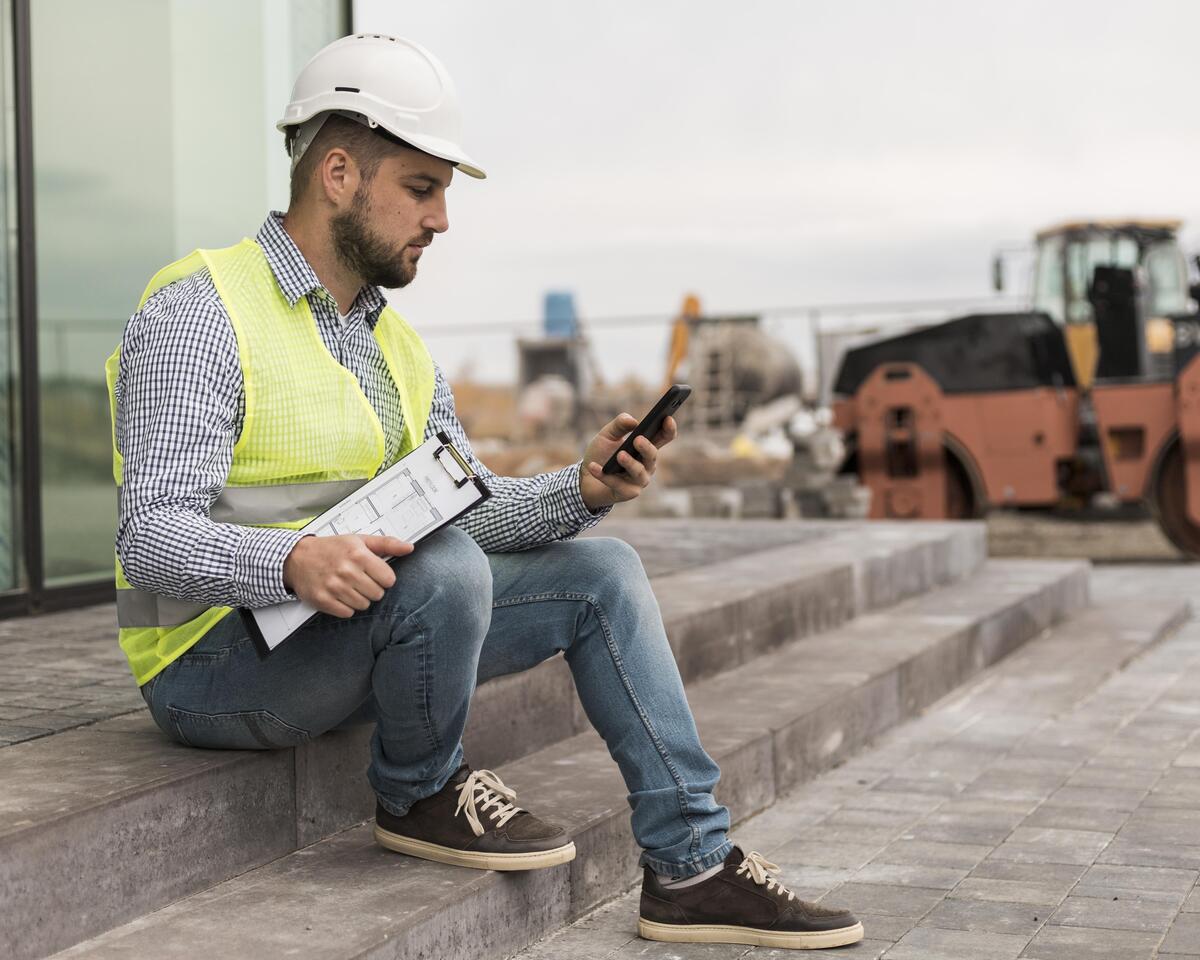Updated by Nazanin Ghodsian, 09/17/2024
With ChatGPT in Construction leading the way, the future of construction is being redefined by the potent combination of artificial intelligence and human expertise. In the current era of swift technological advancement, construction experts are not constrained by manual operations or conventional designs. Architects, engineers, contractors, and builders may push the envelope of innovation and efficiency with ChatGPT’s help as a digital collaborator.
ChatGPT in Construction is a game changer, providing instant insights, generating ideas for design, optimizing project management, and enabling seamless communication. It works ceaselessly to increase productivity, reduce errors, and expedite decision-making by serving as a virtual assistant. Construction project execution is changing as a result of ChatGPT’s integration, which does anything from automate monotonous processes to offer real-time solutions.
This article will examine the five main ways that ChatGPT is transforming the construction industry, from the design stage to on-site management. The power of ChatGPT in construction is evident, whether your goal is to lower overall costs, foster better team cooperation, or improve project planning.
Table of Contents
Introduction of ChatGPT in Construction Industry
The construction industry has seen remarkable advancements in recent years, with technology playing a pivotal role in improving efficiency, safety, and project management. Communication and decision-making are two essential ingredients in construction management, which can make or break a project. While traditional methods have been used for years, technological advances are offering us new tools that revolutionize how things are done.
One such innovation that has gained prominence is the use of AI-powered chatbots and virtual assistants like ChatGPT. Chat GPT – an artificial intelligence language model that utilizes machine learning algorithms to understand human-like responses. With its capacity for processing vast amounts of data, Chat GPT in construction management holds great promise for revolutionizing the industry in ways previously thought impossible.
In this article, we’ll introduce you to ChatGPT in construction, a revolutionary AI-powered tool that is reshaping the way professionals and enthusiasts alike approach construction projects. As the construction industry continues to evolve, leveraging the capabilities of artificial intelligence is no longer a mere option but a necessity.
Suggested article for reading: AI in Construction

What is ChatGPT?
One of the top artificial intelligence (AI) research organizations in the world, OpenAI, created the cutting-edge language model ChatGPT. It is one of the most potent conversational AI tools available today since it uses a sophisticated deep learning system that is built to comprehend, analyze, and produce human-like language.
The first version of ChatGPT, GPT-1, was released in 2018; GPT-2 and GPT-3 followed in 2019 and 2020, respectively. The most cutting-edge and commonly utilized version to date is GPT-3, with each successive release being an enhancement over the one before it. It can comprehend and produce human-like language in a variety of circumstances because it was trained on a vast dataset of more than 45 terabytes of text.
It is a chatbot that can assist users and respond to inquiries on a variety of subjects, from general knowledge to specialist themes, including everything related to construction. To enhance its capacity to comprehend and correctly address user inquiries, it has been educated on large volumes of data from numerous sources, including books, papers, and websites.
ChatGPT and the Construction Industry
In the current dynamic landscape of business, construction firms are actively seeking methods to enhance project management and overall operational efficiency. The construction business is predicted to earn enormous revenues ($2,642.4 million) by 2026, with a 26.3% annual growth rate, according to a GlobeNewswire study.
This enormous industrial trend will create new chances in many other industries. Therefore, the growing construction business will succeed greatly if it adopts Generative AI technologies like it. It can offer various types of information and assistance related to the construction industry. Its knowledge is based on the text data it was trained on up until its last training data update in September 2021. The following are some of the most well-known applications of ChatGPT in construction business.
1. Promoting Teamwork among Team Members
In the construction industry, fostering cooperation among team members is vital for project success. The facilitation of collaboration involves simplifying the process for team members to effectively and efficiently work together. It can play a pivotal role in enhancing teamwork among team members through various means.
One approach is establishing a centralized hub for all project-related information and communication, encompassing elements such as project schedules, design blueprints, and progress updates. By consolidating this information, team members gain easy access to the resources needed to perform their tasks and can communicate more efficiently.
Another avenue where ChatGPT in construction aids in collaboration is by automating communication between team members. For instance, it can send reminders or notifications to team members as important tasks or deadlines draw near, ensuring alignment and common objectives. by automating communication between team members. For instance, it can send reminders or notifications to team members as important tasks or deadlines draw near, ensuring alignment and common objectives.
Furthermore, it can facilitate the creation and management of virtual meetings, enabling real-time collaboration among team members, even when they are geographically dispersed. This proves particularly advantageous for construction projects spanning multiple locations. All these functionalities contribute to enhancing collaboration among team members, ultimately leading to a more successful project outcome.
2. Automating Administrative Duties
Automating administrative tasks involves employing technology to execute mundane and repetitive tasks that would otherwise require manual effort. Within the construction sector, this encompasses responsibilities like organizing schedules, handling invoices, and maintaining records.
Leveraging ChatGPT for these purposes enables the streamlining of these tasks, freeing up construction professionals to prioritize essential responsibilities such as project management and team collaboration.
To illustrate, it can be employed to automatically create invoices and purchase orders or to arrange and confirm appointments with clients. This automation not only conserves time and energy but also diminishes the likelihood of errors, thus enhancing the overall efficiency of the construction process.
Suggested article for reading: Automation in Construction

3. Enhancing Client Communication
Enhancing Client Communication in the construction industry is vital. It plays a crucial role in establishing trust, effectively managing expectations, and ensuring client satisfaction with the project’s result. Utilizing ChatGPT in construction can offer several avenues for improving client communication.
One approach involves granting clients convenient access to project-related information through a dedicated portal or platform created with it. Here, clients can easily access project schedules, track progress, and access other critical updates, fostering ongoing engagement.
Additionally, ChatGPT in construction can automate appointment scheduling and confirmation processes, ensuring that important meetings and updates are never overlooked and clients remain well-informed.
Moreover, ChatGPT in construction can assist by promptly addressing frequently asked questions and providing clients with timely information, ultimately enhancing their overall project experience and bolstering satisfaction. In summary, leveraging ChatGPT in construction to enhance client communication can establish robust client relationships, effectively manage expectations, and ensure that the final project aligns with the client’s needs and desires.
4. Optimizing Project Scheduling and Management
The optimization of project scheduling and management entails harnessing technology to enhance the effectiveness and organization of construction projects. ChatGPT in construction offers multiple avenues for achieving this objective. One approach involves the creation and oversight of project schedules. It can generate a comprehensive project schedule encompassing all tasks and associated deadlines. This schedule can be readily shared with team members and updated in real-time to maintain constant awareness of the project’s progress, facilitating early issue detection.
Another valuable application of ChatGPT in construction lies in automating the tracking of project advancements and financial outlays. Collecting and analyzing data on project progress, expenditures, and critical metrics, equips construction professionals with the means to pinpoint areas where a project may be lagging in terms of schedule adherence or budget allocation, enabling proactive remediation.
Furthermore, its capabilities extend to report generation and real-time updates for stakeholders, ensuring that all project participants remain well-informed and aligned. In summary, the integration of ChatGPT in construction project scheduling and management endeavors enhances construction efficiency, diminishes the likelihood of errors, and elevates the overall project outcome.

5. Improving Project Documentation and Record Management
Enhancing project documentation and record management involves leveraging technology to refine the structure, precision, and accessibility of project-related data. In the construction sector, precise and comprehensive documentation holds vital importance for regulatory compliance, project oversight, and maintaining a transparent historical account of activities. ChatGPT in construction offers several avenues to enhance these aspects.
One approach entails establishing and maintaining a central repository for all project-related documents and information. ChatGPT in construction can facilitate the creation of a digital platform where essential documents, including design blueprints, progress updates, invoices, and receipts, can be securely stored and readily accessed by relevant stakeholders.
This ensures that everyone has access to the most current information, promoting informed decision-making. Another valuable application it lies in automating the generation of project-related documents such as invoices, purchase orders, and progress reports. This not only saves considerable time and effort but also reduces the likelihood of errors.
Furthermore, ChatGPT in construction can be employed to maintain an accurate record of all project-related communications and activities, promoting awareness of completed tasks, pending actions, and upcoming steps. Overall, the integration of this AI tool into project documentation and record management enhances regulatory compliance, streamlines project organization, and augments overall operational efficiency.
6. Enhancing Resource Allocation and Utilization Efficiency
Improving resource allocation and utilization efficiency involves harnessing technology to effectively plan and oversee the deployment of resources within a construction project. Resources in construction encompass materials, equipment, labor, and budgetary considerations. ChatGPT offers several avenues to optimize resource allocation and utilization.
One approach entails the creation and management of a resource plan. ChatGPT in construction can generate a resource plan detailing resource requirements, timing, and utilization methods. This plan can be readily shared with team members and updated in real-time as the project unfolds, ensuring efficient resource utilization and preventing shortages or delays.
Another valuable application of ChatGPT in construction lies in automating the monitoring of resource consumption and costs. ChatGPT can collect and analyze data about resource usage and expenditure, identifying instances of wastage or unexpected cost overruns. This empowers construction professionals to make necessary adjustments and fine-tune resource allocation and utilization.
Furthermore, ChatGPT can produce reports and deliver real-time updates regarding resource usage and costs, ensuring that all project stakeholders remain informed about available resources and their utilization patterns. In summary, integrating ChatGPT into resource allocation and utilization processes enhances resource efficiency, keeps costs in check, and supports on-time and on-budget project completion.

7. Creating Cost Estimates and Predictions
Creating cost estimates and predictions involves utilizing technology to anticipate and strategize for the expenses associated with a construction project. ChatGPT in construction can be harnessed to produce cost estimates and forecasts through various methods. One approach is to utilize historical data to project future costs.
It can analyze data from past projects and utilize that information to generate cost estimates for upcoming projects. This enables construction professionals to plan and budget for project expenses with greater precision.
Another method through which ChatGPT in construction can generate cost estimates and forecasts are by simulating diverse scenarios and identifying potential cost implications. It can simulate different project scenarios and pinpoint potential cost consequences, such as fluctuations in material or labor costs. This allows construction professionals to prepare and budget for possible cost fluctuations.
Furthermore, ChatGPT in construction can be employed to generate real-time cost forecasts and updates, assisting construction professionals in monitoring actual costs as the project progresses and making necessary adjustments. In summary, utilizing ChatGPT in construction to generate cost estimates and forecasts contributes to ensuring that a construction project remains within budget and that costs are both manageable and foreseeable.
8. Improving Safety at Construction Sites
Improving safety at construction sites involves utilizing technology to enhance the well-being of both workers and the public present at these locations. ChatGPT in construction offers several avenues to bolster safety at construction sites. One approach is through the monitoring and tracking of safety compliance and incidents.
It can be employed to gather and analyze data about safety adherence and incidents, aiding in the identification of areas where safety measures can be enhanced. This encompasses overseeing compliance with safety regulations, identifying and mitigating potential hazards, and monitoring incident and injury statistics.
Another means by which it can elevate safety at construction sites is by delivering real-time updates and alerts. ChatGPT in construction can generate reports and furnish instant notifications concerning safety compliance and incidents, alerting construction professionals to potential safety concerns. This proactive approach helps prevent incidents and injuries.
Additionally, ChatGPT in construction can be utilized to develop and disseminate safety training materials and resources to workers. This ensures that workers are well-informed about safety protocols and procedures, and equipped with the knowledge and resources necessary to carry out their tasks safely.
In conclusion, harnessing it to improve safety at construction sites ensures the protection of workers and the public from potential hazards, contributing to the secure and incident-free completion of construction projects.

9. Enhancing Overall Project Efficiency and Productivity
Enhancing overall project efficiency and productivity involves employing technology to streamline operations, optimize resource utilization, and foster improved collaboration among team members, all to complete construction projects more efficiently and effectively. ChatGPT in construction offers several means to enhance overall project efficiency and productivity.
One approach is to automate administrative tasks such as record-keeping, scheduling, and resource management. It can handle these tasks, freeing up construction professionals to concentrate on more critical project aspects.
Another way in which it can enhance overall project efficiency and productivity is by facilitating team collaboration. ChatGPT in construction can establish a central repository for project information, enabling team members to access and share data in real-time. This fosters better communication and teamwork, reducing the likelihood of delays and errors.
Moreover, ChatGPT in construction can optimize resource allocation and usage. By analyzing resource consumption, ChatGPT can pinpoint areas where resources can be employed more effectively. This optimization contributes to heightened productivity and reduced costs.
In conclusion, leveraging it to enhance overall project efficiency and productivity empowers construction professionals to complete projects more efficiently, effectively, and with reduced effort.
10. Detecting and Dealing with Potential Project Challenges at an Early Stage
Detecting and dealing with potential project challenges at an early stage involves employing technology to proactively spot and resolve issues that might emerge during a construction project. ChatGPT in construction offers several means to accomplish this.
One approach is by scrutinizing data and recognizing patterns that could hint at impending problems. It can gather and analyze data from various sources like project schedules, resource usage, and cost data. Through this analysis, it can pinpoint trends that may signify potential issues, such as delays or budget overruns.
Another method through which ChatGPT in construction can identify and address potential project issues promptly is by delivering real-time project progress updates. It can generate reports and provide live updates on project advancement, spotlighting any potential concerns demanding attention. This empowers construction professionals to take corrective measures before these issues escalate.
Furthermore, ChatGPT in construction can simulate different scenarios and identify potential risks and obstacles, enabling construction professionals to be prepared and formulate contingency plans. In essence, leveraging it for the early identification and resolution of potential project issues ensures that problems are swiftly dealt with, reducing their impact on project schedules, budgets, and overall quality.

Conclusion
In the construction sector, technology plays a pivotal role in advancing project management and efficiency. One technological innovation with the potential to transform the management of construction projects is ChatGPT.
This AI tool as a robust language model, offers a wide range of applications, including automating administrative tasks, fostering team collaboration, enhancing client communication, streamlining project scheduling and management, improving project documentation and record-keeping, optimizing resource allocation, proactively identifying and resolving potential project issues, generating cost estimates and projections, enhancing safety at construction sites, and ultimately enhancing overall project efficiency and productivity.
Through its capacity to process and analyze substantial data volumes, it empowers construction professionals to make more informed decisions, elevating the overall efficiency and effectiveness of construction endeavors. Furthermore, ChatGPT in construction contributes to cost reduction, minimizes project delays, and bolsters safety measures on construction sites.
In essence, it stands as a potential game-changer within the construction industry. Leveraging its advanced capabilities, construction professionals can refine their project management practices, ultimately delivering superior outcomes.
FAQs
What is ChatGPT, and how is it Used in the Construction Industry?
- Answer: OpenAI’s ChatGPT is an AI-powered language model that employs machine learning to comprehend and produce responses that are similar to those of a human. ChatGPT helps with a variety of tasks in the construction sector, including streamlining team collaboration, automating administrative tasks, upgrading project documentation, allocating resources optimally, and more. It facilitates operational simplification, enhances communication, and increases general construction management efficiency.
How can ChatGPT Improve Collaboration Among Construction Team Members?
- Answer: By providing a central location for project-related communication, including timetables, blueprints, and progress reports, ChatGPT helps improve teamwork. In addition, it arranges virtual meetings for scattered teams, automates reminders and notifications, and makes sure that everyone is on the same page regarding project objectives, all of which enhance teamwork.
What Role does ChatGPT Play in Optimizing Project Scheduling and Management?
- Answer: Real-time updates, progress tracking, and the creation and management of detailed project timelines are all made easier using ChatGPT. Proactive solutions can be implemented via early detection of scheduling or budgetary concerns through automation of data gathering and analysis. Additionally, it improves project coordination and monitoring by producing reports and updates for stakeholders.
How does ChatGPT Contribute to Improving Safety at Construction Sites?
- Answer: By tracking events and keeping an eye on compliance with safety requirements, ChatGPT improves safety. To assist construction professionals in identifying hazards and taking prompt action, it generates safety reports, alerts, and updates in real-time. It also contributes to the production and dissemination of worker safety training materials, enhancing site safety in general.
Can ChatGPT Help with Creating Cost Estimates and Managing Budgets in Construction Projects?
- Answer: Indeed, ChatGPT can produce precise cost estimates and forecasts for upcoming projects by analyzing existing project data. It ensures that construction professionals can keep an eye on costs and stick to their budget by simulating various situations and providing real-time cost updates.
Suggested article for reading:
Resilient Construction; 2024 Guide
IIoT Technology: Top 7 Sustainable Practices It Enables
Case Study: Top 4 Eco-Friendly Smart Building Construction Projects
Top 7 Reusable Materials in Construction; 2024 Review
Important Construction Technology in 2024
7 Important Building Technology Ideas for 2024
Resources:
medium | buildr | shoveldy | aicontentfy | letsbuild
For all the pictures: Freepik





